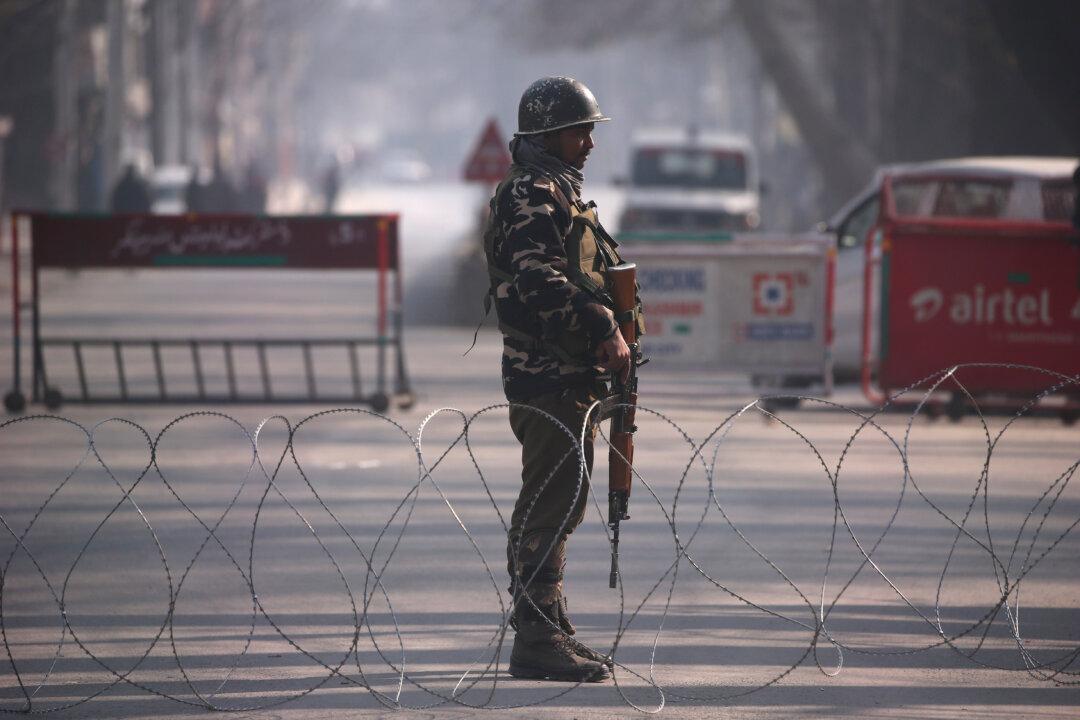SRINAGAR, India—Indian police detained separatist leaders in the disputed Kashmir region on Dec. 17 and sealed off roads in an effort to stifle protests against the killing of civilians on the weekend.
Unrest has intensified over recent weeks in the Muslim-majority region at the heart of decades of hostility between India and Pakistan, and seven civilians were killed on Dec. 15 when security forces opened fire at a protest over the killing of three militants.





